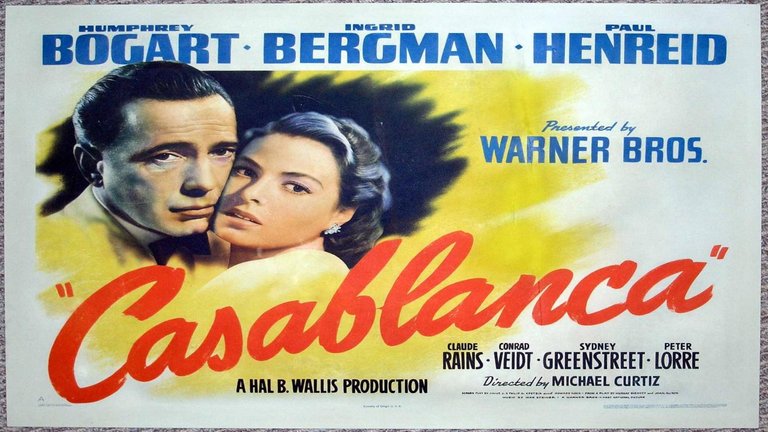Casablanca Movie Review

Title: Casablanca (1942)
Directed by: Michael Curtiz
Genre: Drama, Romance, War
Casablanca, a timeless classic, continues to captivate audiences with its gripping story, memorable characters, and profound themes. Released in 1942, during the height of World War II, this film has achieved legendary status in cinema history, and its impact has endured for decades.
Set in the Moroccan city of Casablanca, the film centers around Rick Blaine (played by Humphrey Bogart), an American expatriate who owns a popular nightclub. Rick's apathetic demeanor hides a complex past, and he prefers to keep his distance from the brewing conflicts of war. However, his carefully constructed world is disrupted when his former lover, Ilsa Lund (played by Ingrid Bergman), walks back into his life, accompanied by her husband, resistance leader Victor Laszlo (played by Paul Henreid).
What makes Casablanca truly remarkable is its masterful storytelling, blending elements of romance, suspense, and political intrigue. The script, written by Julius J. Epstein, Philip G. Epstein, and Howard Koch, is an exquisite blend of witty dialogue, emotional depth, and philosophical musings. The film's famous lines, such as "Here's looking at you, kid" and "We'll always have Paris," have become iconic in their own right, etching themselves into the collective consciousness of film enthusiasts.
The performances in Casablanca are nothing short of exceptional. Humphrey Bogart's portrayal of Rick Blaine is iconic, effortlessly conveying the character's inner conflict and disillusionment with a world gone awry. Ingrid Bergman delivers a heartfelt performance as Ilsa Lund, torn between her love for Rick and her commitment to Victor's cause. The chemistry between the two leads is palpable, enhancing the film's romantic tension and making their love story all the more compelling.
The supporting cast is equally impressive, with standout performances by Claude Rains as the suave and morally ambiguous Captain Renault and Sydney Greenstreet as the cunning and enigmatic Signor Ferrari. These characters bring depth and complexity to the narrative, embodying the shifting alliances and moral ambiguity of wartime Casablanca.
Director Michael Curtiz's skillful direction shines throughout the film. The atmospheric cinematography, evoking a sense of intrigue and danger, perfectly captures the mood of the era. The use of shadow and lighting adds depth and nuance to the visuals, enhancing the emotional impact of key scenes.
Beyond its romantic and dramatic elements, Casablanca explores themes of sacrifice, loyalty, and the power of personal convictions. It portrays individuals caught in the midst of a global conflict, faced with difficult choices that test their values and resilience. The film's climactic scenes, set in the foggy airport, are among the most memorable in cinematic history, leaving a lasting impression on viewers.
Casablanca remains a cinematic masterpiece, celebrated for its timeless story, unforgettable characters, and evocative atmosphere. It continues to resonate with audiences, reminding us of the enduring power of love, honor, and the human spirit, even in the face of adversity.
Overall, Casablanca is a must-watch film for any lover of cinema. Its artistry, emotional depth, and universal themes make it a true gem in the history of motion pictures, deserving of its place as one of the greatest films ever made.
Rating: 10/10